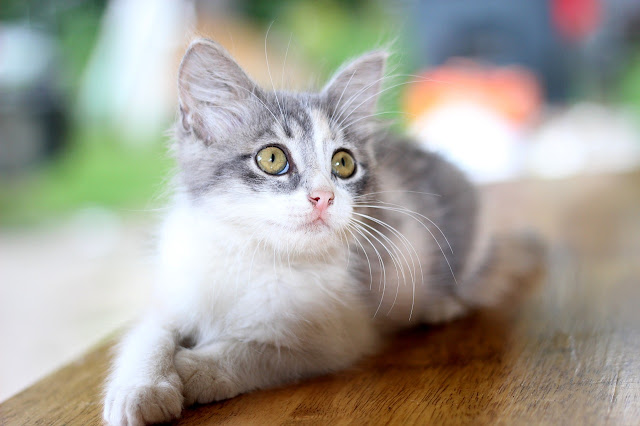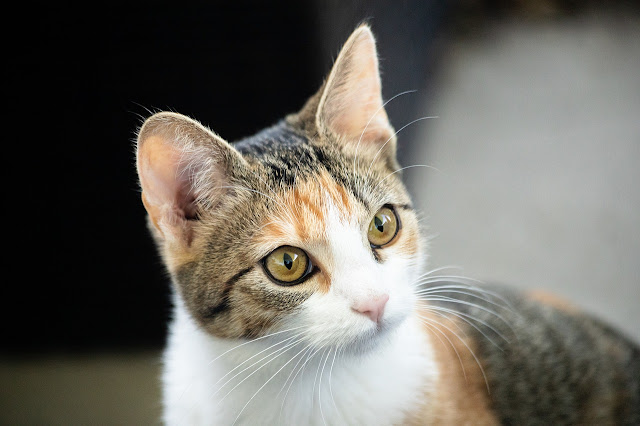Today we are going to see the reasons for Why does your cat breathes loud. Cats do not always breathe quietly. Sometimes they make loud, long breathing sounds when they are sleeping or relaxing. This is normal and is not a cause for concern in the vast majority of cases.
Why does Your cat breathe loud
However, if you notice that your cat's breathing pattern has changed and he seems to be having difficulty catching his breath or making respiratory noises, then it may be an indicator of a more serious problem.
1. Genetics
Many sources suggest that breathing problems in cats are often hereditary. Therefore, the primary cause of loud breathing may be a respiratory disorder that your cat inherits from its parents. In this case, you should take it to a vet as quickly as possible for proper examination and treatment. Your pet's loud breathing may also be caused by another condition, such as asthma. If you notice that your cat is breathing heavily for no apparent reason, it may be best to take him or her to the vet as soon as possible.
2. Low-quality diet
A low-quality food means a lot of fillers and additives, which make the final price very low – for you – but they can slowly lead to multiple health problems for your cat. Dry food that is rich in cereals and grains may also produce similar effects since most cats are not able to digest them properly.
3. Allergies
Cats are very sensitive animals when it comes to allergies, which means that their immune system might be reacting in the form of inflammations in the respiratory system. This in turn suggests that your cat's loud breathing may be caused by allergies to pollen, for instance, or dust. There are also other allergens that you need to take into accounts, such as corn products or chicken.
4. Heart disease
As cats get older they are more likely to suffer from heart disease. In fact, this is one of the major causes of breathing problems in cats. Heart issues are not as common as they are for dogs, but you should still be aware of the symptoms and know that a loud breathing cat may be a symptom of heart issues, which should be treated as soon as possible.
5. Respiratory issues
Cats are very clean animals, which means that they constantly groom themselves. However, this may also mean that your cat can swallow a lot of furs while grooming. This in turn leads to respiratory problems and the production of mucus in the respiratory tract. When breathing, these clumps of hair may produce strange sounds, but your cat is still having those respiratory issues.
6. Vomiting and nausea
One of the most evident symptoms that your cat may be vomiting or nauseated is drooling. However, fins like loud breathing may also indicate such conditions as well as other serious problems, such as an ulcer in the digestive system or even a possible poisoning.
7. Anxiety and stress
Just like people, cats get stressed and anxious too. This may happen especially when they are exposed to new surroundings or unfamiliar situations, such as visits to the vet's office. Cats who become stressed can develop respiratory problems that lead to sharp breathing sounds. These conditions may last only a short time after the stress, but there are cases in which the effects may be permanent.
8. Infections
Respiratory infections can have a huge impact on your cat's breathing and this may result in sharp sounds that you probably haven't heard before. If your cat is exposed to a virus or bacteria, its body will try to fight it off. If you notice that your cat is breathing heavily and there aren't any other symptoms like furballs, then the most probable cause is an infection.
9. Heartworms
Heartworms may be transmittable to cats as well as dogs, but they are less common in felines than they are among canines. Usually, heartworm infections in cats are less severe than they would be in dogs. Loud breathing may just be one of the symptoms that your cat has heartworms, but it is quite serious and should not be ignored.
10. Lung disease
Feline lung diseases can also produce similar effects to those produced by heartworms and other respiratory tract infections. Cats who suffer from feline lung disease may experience breathing problems and the loud, heavy breathing sound that your cat makes is also one of these symptoms.
Conclusion
Loud breathing sounds in cats may indicate serious problems, including heart disease. Careful attention to the behavior and symptoms of your cat can help you recognize a problem that requires a trip to the veterinarian to prevent further damage or even save your pet's life.



